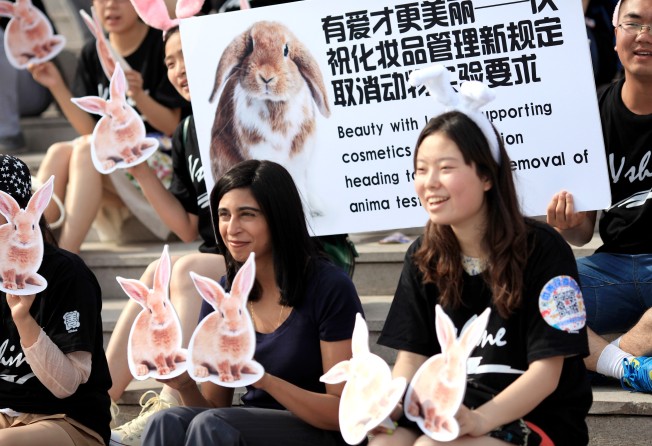End cruelty to animals in the name of beauty or health: stop buying

From cosmetics to medicines, many companies use animals to test their products, but we as consumers might not be aware of this. Famous multinational beauty brands test on animals while creating their cosmetic products. I am saddened to learn that tens of millions of animals are subjected to such testing worldwide every year.
Animal testing is unethical and cruel. In tests carried out for cosmetics such as shampoo and mascara, animals are shaved then smeared with the products on their bare skin without pain relief. Worse, some scientists are reported to have pumped toxic smoke into monkeys’ noses for hours a day to investigate the consequences of smoking in humans, or got them addicted to alcohol or cocaine to see the effects of drug use. It is absolutely inhumane to inflict such cruelty and suffering.
The good news is that there are ways to cease animal testing. We consumers should boycott products that are not cruelty-free to discourage corporations from continuing animal tests. This can create an incentive for change. Many countries – such as Israel, New Zealand, Norway and India – have banned animal testing and the sale of cosmetic products that depend on such testing.
Companies could replace animal testing by constructing human tissues. Reconstructed human tissue like EpiDerm can be used to predict the skin irritation potential of chemicals, and fully replace testing done on rabbits.
Another new technique, known as “human on a chip” systems, allow researchers to replicate human cell membranes to investigate how a chemical or drug affects cells. This model could be used for testing potential drug candidates for Covid-19, instead of carrying out experiments on animals.
Animal testing is unethical and can sometimes be unreliable. With alternatives available, we should put more effort into protecting the lives and well-being of all forms of life.
Jacqueline Li, Wong Tai Sin